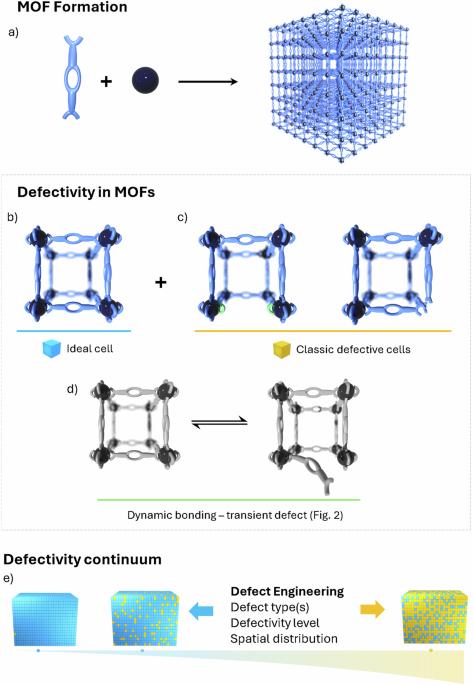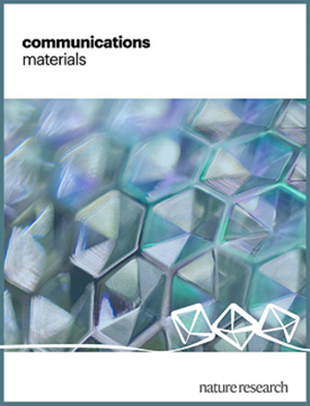金属有机框架缺陷的益处和复杂性
IF 9.6
Q1 MATERIALS SCIENCE, MULTIDISCIPLINARY
引用次数: 0
摘要
过去十年来,缺陷工程已发展成为塑造金属有机框架(MOF)化学性质的独特工具;MOF 从完美、僵硬的基质发展成为动态材料,其化学性质既受其分子成分的影响,也受其缺陷的影响。然而,缺陷表征和可重复性方面的挑战依然存在,再加上合成参数在缺陷形成中的作用尚不明确,使得化学家无法充分发挥网状合成的潜力。在此,我们将描绘缺陷对 MOF 特性的广泛影响,强调关键挑战,并探索不完美如何丰富 MOF 化学。在金属有机框架中设计缺陷是赋予其额外特性的一种策略,但其可重复性仍面临挑战。本视角介绍了缺陷对金属有机框架特性的益处以及该领域的主要挑战。本文章由计算机程序翻译,如有差异,请以英文原文为准。

Benefits and complexity of defects in metal-organic frameworks
Defect engineering has developed over the last decade to become an inimitable tool with which to shape Metal-Organic Framework (MOF) chemistry; part of an evolution in the perception of MOFs from perfect, rigid matrices to dynamic materials whose chemistry is shaped as much by imperfections as it is by their molecular components. However, challenges in defect characterisation and reproducibility persist and, coupled with an as-yet opaque role for synthetic parameters in defect formation, deny chemists the full potential of reticular synthesis. Herein we map the broad implications defects have on MOF properties, highlight key challenges and explore the remarkable ways imperfection enriches MOF chemistry. Engineering defects into metal-organic frameworks is a strategy to grant additional properties but there are still challenges with their reproducibility. Here, this Perspective presents the benefits of defects in metal-organic framework properties and key challenges in the field.
求助全文
通过发布文献求助,成功后即可免费获取论文全文。
去求助
来源期刊

Communications Materials
MATERIALS SCIENCE, MULTIDISCIPLINARY-
CiteScore
12.10
自引率
1.30%
发文量
85
审稿时长
17 weeks
期刊介绍:
Communications Materials, a selective open access journal within Nature Portfolio, is dedicated to publishing top-tier research, reviews, and commentary across all facets of materials science. The journal showcases significant advancements in specialized research areas, encompassing both fundamental and applied studies. Serving as an open access option for materials sciences, Communications Materials applies less stringent criteria for impact and significance compared to Nature-branded journals, including Nature Communications.
 求助内容:
求助内容: 应助结果提醒方式:
应助结果提醒方式:


